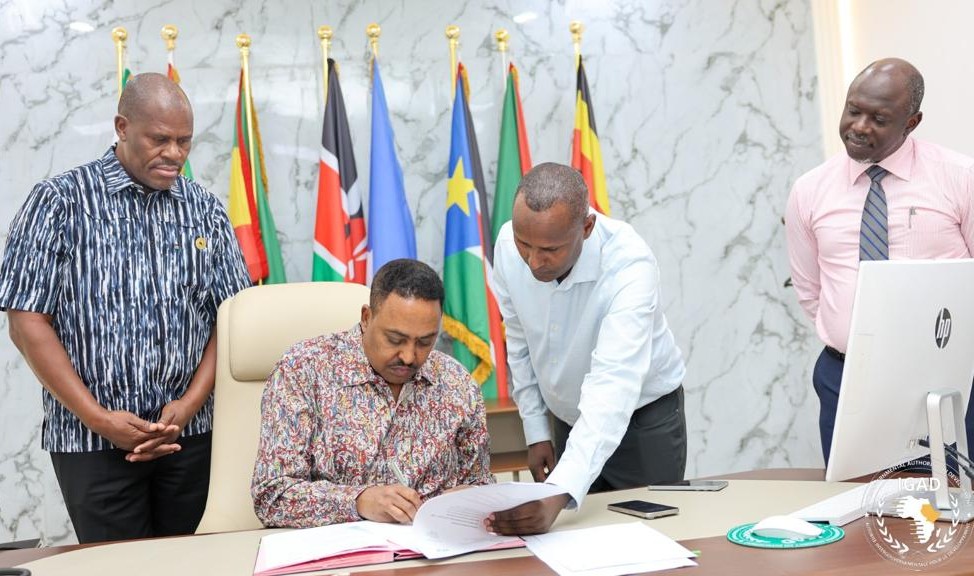
South Sudan will benefit from a €8 million IGAD–Germany grant aimed at improving migration infrastructure and services across key corridors in the Horn of Africa.
Signed Thursday in Djibouti by IGAD’s Dr. Workneh Gebeyehu, the German-funded grant channeled through BMZ and KfW Development Bank, will support Phase IV of the Regional Migration Fund (RMF).
The initiative focuses on high-mobility corridors, including Nimule–Elegu, which connects South Sudan with Uganda and serves as a vital gateway for cross-border migration, trade, and humanitarian movement.
“This partnership is a demonstration of the strong and trusted relationship between IGAD and the Federal Republic of Germany.
“Through this funding, we will continue building migration corridors that are safer, more resilient, and responsive to the needs of both migrants and host communities,” said Dr. Workneh.
The Nimule–Elegu corridor, one of the busiest migration routes in the region, has long faced challenges including limited access to essential services, poor infrastructure, and vulnerabilities among mobile populations.
Under this funding, IGAD will directly oversee the development of infrastructure projects such as health centers, water systems, and safe transit spaces along the corridor, while also enhancing the capacity of local institutions to manage migration effectively.
The support reflects a broader strategic alignment with IGAD’s priorities of regional integration, peace, and human mobility, especially in fragile border areas like South Sudan.
Since its launch in 2019, the Regional Migration Fund has become a key mechanism for delivering tangible benefits to migrants, refugees, and host communities through targeted investments.
With Phase IV now underway, South Sudan stands to gain from a more coordinated, development-oriented approach to migration governance.
The agreement also signifies growing confidence in IGAD’s leadership role in shaping regional migration responses, and Germany’s continued commitment to fostering sustainable, dignified mobility across Eastern Africa.

